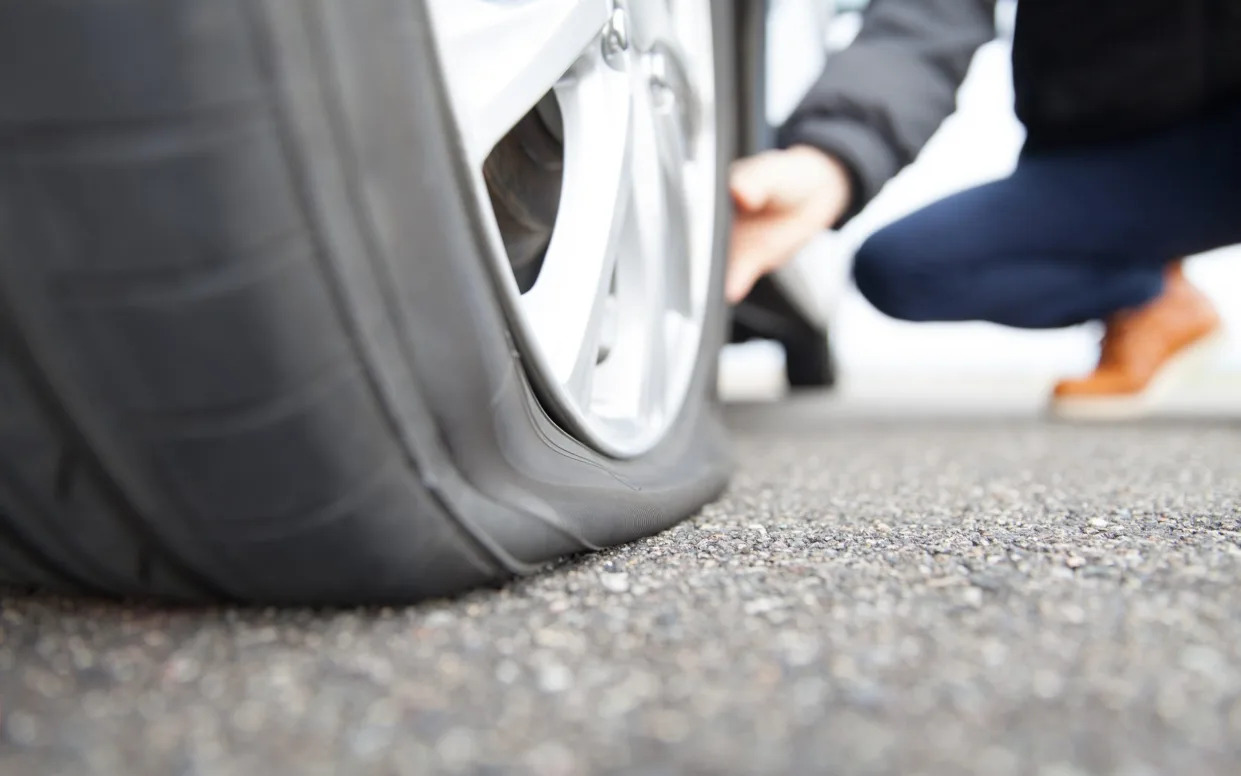I fucking hate electric cars ........now you have more shite to deal with.......... tyres/tires........ as sherman's /sherman tanks/yanks........i have nothing good to say about elctric cars .....except they are pure shite ........
Electric car drivers face astronomical costs to replace tyres
Electric car buyers should be aware of the “astronomical” costs required to regularly replace short-lived tyres, owners have warned.
Car lover Jim Bassett managed just 7,500 miles in his brand new Volkswagen ID.3 before being quoted more than £300 to replace the rear rubber.
The 80-year-old stumped up the cash after being told it was common practice for tyres on his rear-wheel model to degrade rapidly due to the weight of the vehicle .
Due to its heavy battery, the £35,000 hatchback weighs around 1,800kg – the same as a Jeep Wrangler 4x4.
Fellow ID.3 owners have taken to online forums to also complain of short tyre life, blaming degradation on the hefty weight and instant torque of the car.
Mr Bassett, of Hitchin, Hertfordshire, said: “I couldn’t believe it when I was told they needed replacing.
“I’m quite old and have had cars all my life – I’ve never had to change tyres this early, it’s normally been at around 25,000 miles.
“It amazed me, as at 7,500 miles tyres are virtually new.
“The VW dealership expressed no surprise or concern that they needed replacing so soon, saying that ‘the car is rear-wheel drive and very heavy’.”
Mr Bassett opted to go to a different tyre garage instead, but a mechanic came to the same conclusion and he was quoted £165 to replace both of the rears.
“I think more people should be aware that EVs have an appetite for tyres and they won’t last long,” he said.
“When I was working I was regularly doing 45,000 miles a year. If I had this car then, I’d be faced with paying £300 six times a year just to replace the rears, which would be astronomical.”
Mr Bassett said he will now think twice about buying an EV in the future due to his experience with premature tyre life. His front pair are now almost in need of a change after surviving only marginally longer than the rears.
The strain on EV tyres comes as a result of both the extra weight and higher torque, the twisting power that launches a car from a standing start.
Road safety charity Tyresafe said: “All that power at any speed in a heavy vehicle means if the driver regularly accelerates hard, the tyres are put under tremendous strain, fighting to grip the road and not spin.”
Due to the greater acceleration speed, manufacturers advise drivers to be delicate on the throttle to prolong tyre life.
Volkswagen, which first launched the ID.3 in 2019, said that driver performance is the key factor impacting tyre wear.
A spokesman said: “Tyre longevity is influenced by a wide range of factors, most importantly the way in which the vehicle is driven, for example, hard cornering, braking and acceleration can cause more wear than gentle driving.”
VW also said that “types of road surfaces, temperature, correct maintenance of tyre pressures; care when parking; and the amount of load the vehicle carries” all impact the level of degradation.
Tyre manufacturer Michelin has previously said that conventional tyres wear out around 20pc faster in an electric vehicle, while Goodyear said they can degrade as much as 50pc faster.
Last year, research by technology firm Epyx found that, on average, tyres fitted to EVs lasted 6,350 fewer miles than those on petrol or diesel cars. The first tyre change for electric cars takes place after an average of 17,985 miles, compared to 24,335 miles for petrol and diesel cars.
Tyre makers are continuing to develop bespoke EV rubber suited to the heavier vehicles, but they can come at a greater cost for drivers. Epyx found that the average tyre cost £207 for larger electric vehicles – £77 higher than the cost for larger petrol cars.
Department for Transport data from 2015 to 2018 showed that 46pc of electric car MOT failures were caused by tyres, compared to 32pc for petrol cars.
EVA England, an association for electric car drivers, said despite the claims, zero-emission vehicles are “highly reliable”.
“Experiences such as these point towards anecdotal evidence rather than the general use case,” a spokesman said.
“The vast majority of EV drivers report they are overwhelmingly enjoying the experience, and over 90pc would never return to petrol or diesel.”



No comments:
Post a Comment